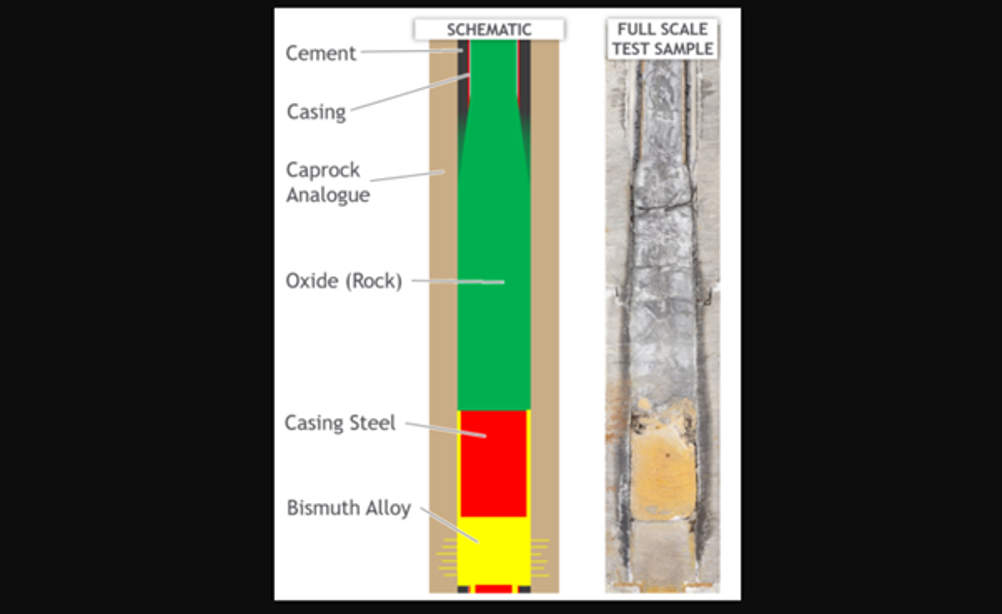The novel technique involves the creation of a metal plug, including a bismuth alloy, that is produced at depth in the well casing. An artificial lava, or magma, is effectively created in the subsurface which melts all the manufactured components and materials. These then solidify to form a permanent barrier that seals the well.
Related content
Developed by Norwegian oilfield services company Interwell, the core component of the technology is called ‘RockSolid’, which consists of a solid barrier made up of several phases that are formed during a thermite reaction. This involves the ignition of a metal in the presence of the oxide of another metal that is less reactive than the first, and is the same chemical reaction used for welding rail tracks together.
During the thermite reaction, the oxygen in the reaction changes places, or ‘jumps’ from the oxide to the unoxidised metal, releasing intense heat of more than 3,500°C. This causes both the well casing and the cement surrounding it to melt. The intense reaction creates an elongated plug that completely fills the available space, adapting itself to the irregular shape of the borehole.

Testing of RockSolid has been undertaken by Norwegian lab SINTEF (The Foundation for Scientific and Industrial Research). According to SINTEF, tests so far have been successful, with simulated downhole conditions such as elevated temperatures, pressures and the presence of CO2, H2S and chlorides showing no signs of corrosion on the bismuth alloy layer. While the steel layer did incur some corrosion, this layer has no sealing function, instead acting as a mechanical locking mechanism.
SINTEF said that a similar technique is already being used in Canada, where it has been approved by industry operators and the Canadian authorities as an effective method for the permanent sealing of deep well leakages. The Norwegians also believe that the system could be well suited to sealing abandoned oil and gas wells in reservoirs selected for the future geological storage of CO2.











IET sounds warning on AI doll trend
I agree that we need to reduce cooling water demand for servers. And yes, generative AI consumes a large amount. But what about BitCoins? Their...